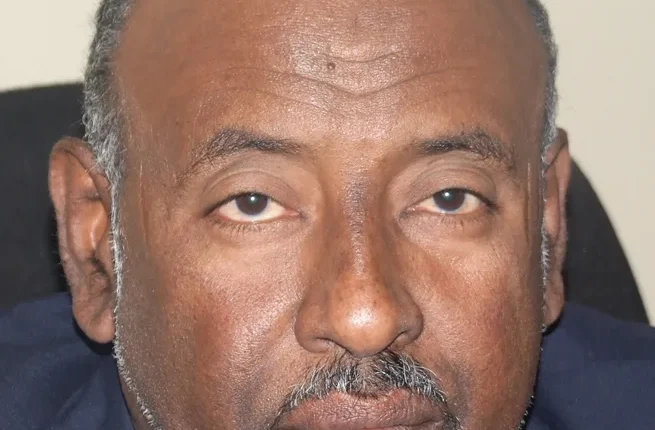Reconstruction and Return: Coordination of Partners’ Efforts for Economic Recovery and Securing Livelihoods

By Professor Ahmed Magzoub Ahmed
At the outset of this article, it is necessary to commend the efforts of the Governor of Khartoum and his government in preparing the environment to encourage citizens to return to the capital. The Khartoum government has been vigilant in restoring water and electricity services and ensuring security—undoubtedly essential requirements without which life cannot function.
Gratitude is also due to those managing the economic portfolio in the past period, despite the immense challenges facing Sudan’s economy in general and Khartoum State in particular.
The war halted production and employment, exacerbated unemployment, and eroded incomes through the destruction of infrastructure and productive capacity. This was followed by a deterioration in the investment climate, disruption of production relations, flight of domestic capital, withdrawal of foreign investment, falling output, and shrinking exports. Consequently, average incomes declined, inflation rose, the currency depreciated, and budget deficits widened, worsening living standards even for those with sources of income.
After the Armed Forces’ victory, the defeat of the rebellion and its backers, and the breaking of its strength, the government moved swiftly to normalise life in Khartoum and encourage citizens to return to their homes. The Chairman of the Sovereignty Council formed a committee, chaired by Lieutenant General Ibrahim Jaber, to oversee this file and support the efforts of Khartoum State to prepare the environment for citizens’ return.
Despite these commendable efforts, I wish to stress that the most pressing challenge—no less important than security and basic services, and arguably the greatest challenge now—is the loss of employment opportunities in both the public and private sectors, and with it, the loss of household income.
It is well known that the principal source of jobs lies in the private economic sector, which accounts for over 80% of GDP. Pre-war statistics show that Khartoum State hosted no less than 20% of Sudan’s population, and served as the country’s economic hub, contributing more than 40% of commercial, financial, industrial, agricultural, and service activity. This indicates that the primary employer of the workforce is the private sector—particularly in Khartoum.
The war, however, has severely undermined the productive private sector in Khartoum to the point of near disappearance due to the deliberate destruction inflicted by the rebellion. This has brought productive activity to a halt and spread unemployment, while the Ministry of Finance has lost more than 80% of its revenue base.
Thus, what weighs most heavily on the mind of any citizen preparing to return is the prospect of a job—whether in government, the private sector, or through self-employment. Yet all these avenues have been devastated, stripping them of their capacity to generate jobs and income.
This is the true challenge requiring a concerted response: how reconstruction committees and voluntary return committees can create and expand job opportunities, and what mechanisms they can employ to restart production so that every returning citizen can secure a sustainable source of income to meet the costs of living.
Responsibility for this challenge does not lie solely with the governor or with Lieutenant General Ibrahim Jaber, but extends to the economic ministries, the Central Bank, and the banking system. Addressing it demands a package of economic, fiscal, monetary, and financial policies working together to revive productive activity in Khartoum and other affected states.
Some may argue that Omdurman has retained its vitality. True, there is some commercial activity, but most industrial and agricultural institutions remain idle. Charity kitchens still operate, and some relief organisations continue providing free food and healthcare.
All these realities explain the hesitation of some families to return to Khartoum. A stable and renewable income is the returning citizen’s greatest assurance. Therefore, devising, planning, and implementing employment-generating strategies is key to addressing the challenge of return.
Meeting these challenges requires coordinated action by all partners, with urgent programmes financed by domestic or external resources. This necessitates the following:
Restoring confidence in the national economy by directing state economic policy to offer incentives and assurances that encourage local private sector revival and the return of foreign investment.
Prioritising financing for small and medium-sized producers affected by the war, to help them replace lost tools of production and obtain working capital, on flexible terms of collateral and repayment—commencing only once production has resumed—so as to generate direct and indirect jobs.
Launching urgent public–private partnerships (domestic and foreign) to rehabilitate productive infrastructure, such as energy, water, and critical roads, through BOT arrangements or other financing models.
Establishing technical and financial support centres to guide workers and employers in setting priorities, restarting production, and overcoming start-up challenges.
Preparing investment project portfolios for the rehabilitation of productive sectors, to be submitted by private sector associations—endorsed by government—to regional and international financing institutions (such as the IDB and ADB), or to UN agencies like UNIDO, FAO, and IFAD, for inclusion in their financing windows or social responsibility programmes.
Acknowledging a key demographic shift caused by the war, which drove many communities back to their ancestral regions of origin and production. Finding new realities there, they adapted—repairing homes, building new ones, resuming farming and trade, and enrolling their children in schools. Their return to these productive areas has had positive effects. The government should adopt policies that sustain them—through housing, agricultural, or industrial land allocation—ensuring their continued settlement and contribution to the national economy.
Thus, reconstruction programmes and projects must remain continuous and renewable, requiring careful attention from federal, state, and local authorities over both the short and medium term.
We shall return to this discussion, for the duty owed to the homeland is not limited.
Shortlink: https://sudanhorizon.com/?p=7257

